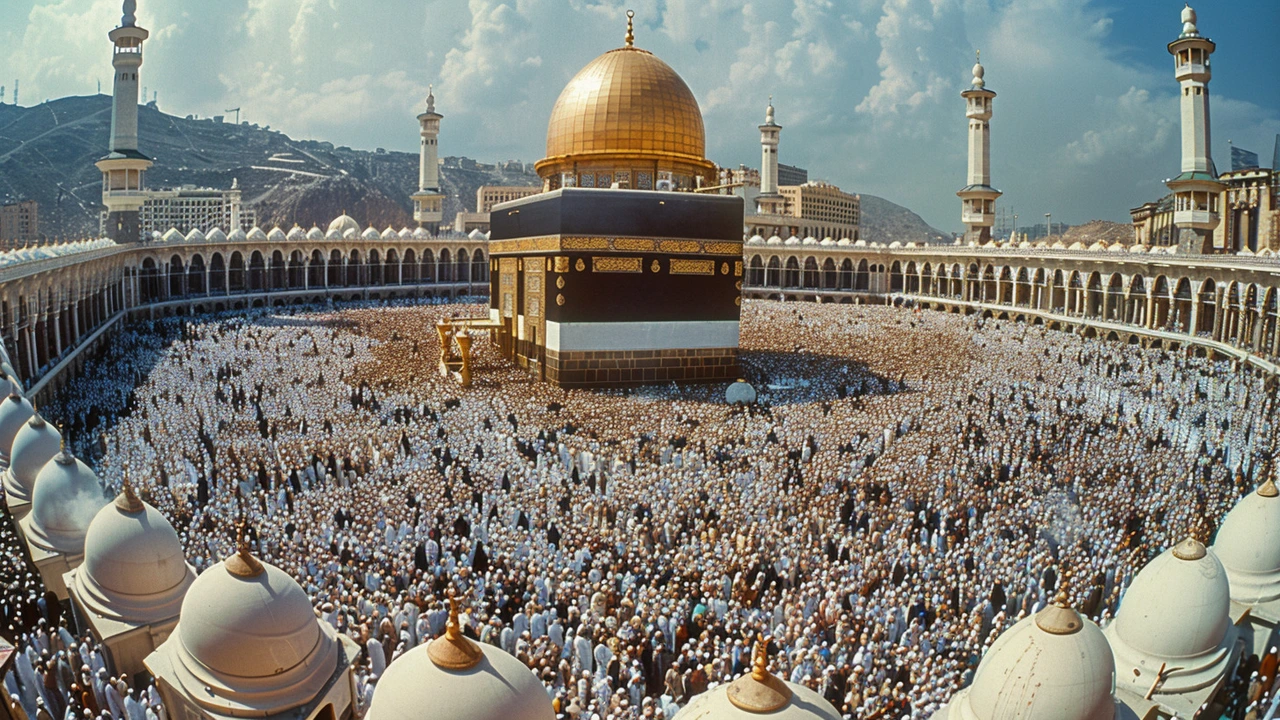Introduction to the 2024 Hajj Subsidy
Nigeria's Vice President, Kashim Shettima, announced an unprecedented decision by President Bola Tinubu to subsidize the 2024 Hajj with N90 billion. The government's intent is clear: to ensure a seamless and successful pilgrimage for Nigerian Muslims. This subsidy is steep, but it reflects Nigeria's commitment to facilitating religious obligations which many believe can profoundly affect behavior and counter social vices.
Government's Commitment to Pilgrimage
The Hajj pilgrimage is a pillar of Islam, and for many Muslims, it is a once-in-a-lifetime obligation. The Nigerian government, recognizing this religious significance, has made substantial efforts over the years to ensure that the financial burden on pilgrims is lightened. The idea is not just about fulfilling a religious duty but also about the potential for positive personal and social transformation.
Vice President Shettima emphasized that the move was also a reflection of the government's dedication to religious causes. He noted that by making the pilgrimage more accessible, the state helps foster a sense of unity and moral rectitude among its citizens.
Economic Implications
However, the decision has stirred controversy and debate. Some argue that the N90 billion subsidy is a misallocation of resources, especially considering Nigeria's numerous socio-economic challenges. Critics point out that those funds could have been used for critical areas such as education, healthcare, or infrastructure. The counterargument from supporters of the subsidy is that the moral and ethical benefits brought by the pilgrimage justify the expenditure, suggesting that a more pious society might indirectly benefit the economy through reduced social vices.
Allegations Against Saudi Arabia
Adding another layer of complexity to this issue are the allegations against Saudi Arabia. Social media commentator Shehu Sadiq has been vocal about his concerns. He claims that while Nigeria invests heavily in the Hajj, Saudi Arabia is purportedly involved in sponsoring Islamic terrorism. For Sadiq and his supporters, this relationship is problematic and places Nigeria in a compromising position.
Sadiq’s critique goes further to describe Nigeria as a 'mumu country,' a term implying naivety and gullibility. His view is that Nigeria's investment in the Hajj enriches a nation that may have questionable geopolitical motives.
A Complex Relationship
Relations between Nigeria and Saudi Arabia have always been intricate. The Hajj pilgrimage is a significant aspect of their relationship, with tens of thousands of Nigerian Muslims traveling to Saudi Arabia annually. This influx also means considerable revenue for Saudi Arabia, something critics like Sadiq are quick to highlight. They argue that Nigeria's substantial financial contributions indirectly support a regime that has been accused of various international malfeasances.
Supporters of the pilgrimage, however, argue that conflating the spiritual and political aspects undermines the personal and religious significance of the Hajj. They believe that focusing on alleged geopolitical issues rather than the pilgrimage's spiritual benefits does a disservice to the faithful.
The Way Forward
The Nigerian government finds itself at a crossroads. On one hand, there is a clear and demonstrated commitment to supporting its Muslim population in fulfilling their religious obligations. On the other hand, the economic strain and the moral implications of supporting a nation accused of sponsoring terrorism cannot be ignored.
Moving forward, Nigeria might need to rethink its approach to such subsidies. Discussions could involve ensuring that such large-scale expenditures are transparently managed and that the socio-economic benefits are clearly communicated to the public. Additionally, there might be a need for Nigeria to engage diplomatically to address any concerns regarding Saudi Arabia's alleged activities.
Public Sentiment
The public sentiment on this matter is decidedly mixed. While many citizens appreciate the government’s support for religious pilgrimage, others feel disillusioned by what they see as misplaced priorities. Social media has become a battleground for these debates, with passionate arguments from both sides.
Ultimately, the controversy surrounding the 2024 Hajj subsidy shines a light on the broader issues of governance, resource allocation, and international relations. It is a situation that requires careful consideration and balanced decision-making to ensure that the government's actions align with both national interests and the welfare of its citizens.

Write a comment